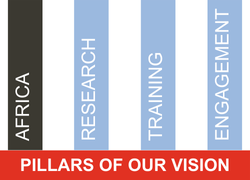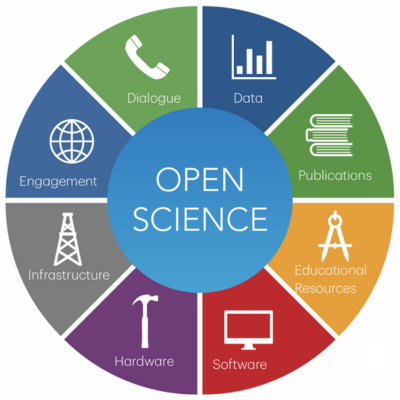Who we are
Built on the foundation of the National Institute for Theoretical Physics (NITheP), NITheCS was launched on 1 April 2024. It serves as a Centre of Excellence under the National Research Foundation, an entity of the government’s Department of Science, Technology and Innovation.
NITheCS is a multidisciplinary and multi-themed institute, as well as an “undisciplinary” institute. It encompasses the following eight themes:
- Astronomy & Astrophysics
- Bioinformatics & Quantitative Biology
- Data Science
- Earth Systems Modelling & Climate Change Modelling
- Mathematics
- Quantitative Finance
- Statistics
- Theoretical Physics
NITheCS aspires to be a leading African institute for theoretical and computational sciences, recognised for its excellent and impactful research, training, and engagement programmes. Through research, training and engagement across its eight science disciplines, NITheCS, aims to address real-world challenges, and contribute to sustainable solutions that align with the United Nations’ Sustainable Development Goals. Additionally, the Institute strives to position South Africa at the forefront of global technological advancements and build competencies for the future.
Governance
NITheCS operates under a robust governance structure. Its Executive Management Committee is supported by a Scientific Advisory Board.
Embracing open science, data, and source
NITheCS champions Open Science as a core principle. Open Science promotes the inclusive sharing and accessibility of scientific knowledge, enabling global collaboration and broad societal engagement in scientific processes. This commitment enhances transparency, fosters innovation and ensures that research benefits both science and society.
Building knowledge
NITheCS hosts numerous events to enhance human and research capacity, and encourages interdisciplinary networking and collaboration among its community. Many events are co-hosted with organisations whose activities align with those of the Institute, such as the Centre for High-Performance Computing (CHPC) for the annual hybrid CHPC & NITheCS Coding Summer School.
Most events are recorded and published on the NITheCS YouTube channel, creating an accessible repository of knowledge for both the local and global community.
Associates
NITheCS’ progress is driven by its Associates, who are from academia or industry within its eight core disciplines. The Institute offers various categories for participation, namely Junior Associate, Individual Associate, Institutional Associate and Strategic Associate.
History
NITheCS was officially formed in April 2021. This marked the completion of a four-step process to transform the National Institute for Theoretical Physics (NITheP) into NITheCS. Read the details of this process in our Roadmap.
Launch of NITheP
In 2004, an international panel, commissioned by the South African Institute of Physics (SAIP), the Department of Science and Technology (DST), and the National Research Foundation (NRF), presented a report titled “Shaping the Future of Physics in South Africa.” Among its recommendations was the establishment of a national institute for theoretical physics, envisioned as a user facility for South African and African theoretical physicists.
A wide-ranging consultation within the South African physics community followed, leading to the submission of a proposal to the DST and NRF in November 2004. The proposal garnered strong international support, including endorsement letters from several Nobel Prize-winning physicists and the International Centre for Theoretical Physics in Trieste, Italy.
After two years of further negotiations, the South African government announced the creation of the National Institute for Theoretical Physics (NITheP) in May 2006, committing to fund the institute for an initial five-year period. NITheP’s vision was “to be Africa’s leading and internationally competitive research and training institute in theoretical physics, a discipline that provides the conceptual framework for the natural sciences.”
By 2007, the necessary infrastructure was in place, and by the end of the year, the first positions for director, five researchers, and five postdoctoral fellows were advertised. In May 2008, NITheP was officially launched, with distinguished guests including world-renowned physicist Professor Stephen Hawking, Nobel Laureate Professor David Gross, and South Africa’s Minister of Science and Technology.
NITheP’s achievements
Over the years, NITheP fostered significant interest in theoretical physics at both national and international levels. This success was driven by several initiatives, including networking opportunities, mobility grants, visiting programs for local and international physicists and students, bursaries, research opportunities, internships, summer schools, and outreach activities.
Between 2008 and 2020, NITheP achieved the following milestones:
- 773 publications
- 216 MSc and PhD graduations
- 76 Associates
- ranked 3rd among institutions in Africa in the physical sciences
- 3 research nodes


